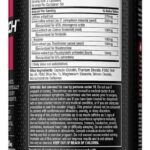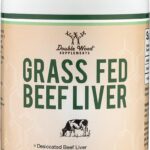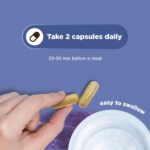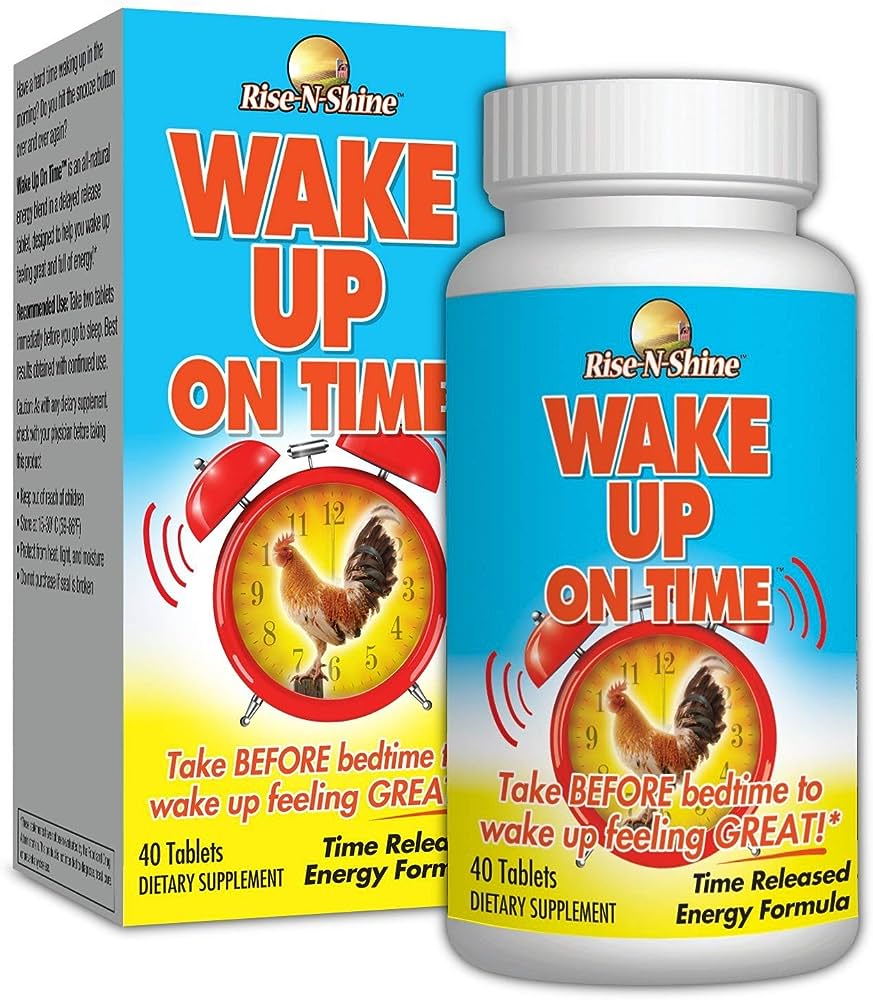Have you ever felt overwhelmed by anxiety or struggled with bouts of depression? It’s a common experience for many people, and finding effective solutions can be challenging. But have you heard about nootropics? These cognitive-enhancing supplements have been gaining popularity in recent years for their potential benefits on brain health and mental well-being. But can they really help with anxiety or depression? Let’s dive deeper into this topic and explore how nootropics might be able to lend a helping hand.
In a world where stress and pressure are constantly on the rise, it’s no wonder that anxiety and depression have become such prevalent issues. The good news is that there are various approaches to managing these conditions, and nootropics are one avenue worth considering. These supplements are believed to enhance cognitive functions like memory, focus, and motivation, while also potentially providing relief from anxiety and depression. While nootropics are not a magical cure-all, they may offer some individuals the support they need to better cope with these mental health challenges.
If you’re wondering how nootropics work, it’s all about boosting the levels of certain neurotransmitters in the brain that are associated with mood and cognitive function. By increasing the availability of these neurotransmitters, it’s believed that nootropics can help regulate mood and alleviate symptoms of anxiety or depression. However, it’s important to note that every person is unique, and what works for one individual may not work for another. That’s why it’s recommended to consult with a healthcare professional before adding any new supplement to your routine.
In this article, we will delve further into the world of nootropics and their potential role in managing anxiety and depression. We’ll explore different types of nootropics, their mechanisms of action, and any potential side effects or risks to be aware of. So if you’re curious about how these supplements might be able to improve your mental well-being, keep reading to gain a better understanding of their possible effects and whether they could be a viable option for you.
Understanding Nootropics
What are nootropics?
Nootropics, also known as smart drugs or cognitive enhancers, are substances that are believed to enhance brain function. They come in various forms, including prescription medications, over-the-counter supplements, and natural herbs. Nootropics are commonly used by individuals seeking to improve their cognitive abilities, memory, focus, and overall mental performance.
How do nootropics work?
The exact mechanisms of action for nootropics are not fully understood. However, they are thought to work by modulating neurotransmitter activity in the brain, improving blood flow and oxygen delivery, and protecting neurons from damage. These effects are believed to enhance cognitive function, including memory formation, attention span, and learning capabilities.
Different types of nootropics
Nootropics can be classified into several categories based on their origins or mechanisms of action. Some of the most popular types of nootropics include:
-
Racetams: These synthetic compounds, such as piracetam and aniracetam, are known for their cognitive-enhancing properties. They are believed to improve memory, focus, and mental clarity.
-
Adaptogens: Natural herbs like ashwagandha and rhodiola rosea are considered adaptogens and are commonly used as nootropics. They are believed to reduce stress, anxiety, and fatigue, promoting a sense of calm and mental well-being.
-
Cholinergics: These substances, such as alpha-GPC and citicoline, work by increasing the production and release of the neurotransmitter acetylcholine. This neurotransmitter plays a vital role in memory formation and learning.
-
L-theanine: Found in green tea, L-theanine is known for its calming effects. It is believed to reduce anxiety and promote relaxation without causing drowsiness.
Anxiety and Depression Overview
Understanding anxiety
Anxiety is a common mental health condition characterized by excessive worry, fear, and unease. It can range from occasional bouts of nervousness to more severe and debilitating episodes. Anxiety often affects a person’s daily life, making it difficult to concentrate, sleep, and engage in activities they once enjoyed.
Understanding depression
Depression is a mood disorder that can cause persistent feelings of sadness, emptiness, and a loss of interest in activities. It affects a person’s emotional and physical well-being, often leading to sleep disturbances, changes in appetite, and low energy levels. Depression can significantly impact one’s quality of life and ability to function.
Common symptoms of anxiety and depression
Anxiety and depression share some common symptoms, although they are distinct conditions. Some common symptoms of anxiety include:
- Excessive worrying and fear
- Restlessness and irritability
- Difficulty concentrating
- Panic attacks
- Muscle tension
Some common symptoms of depression include:
- Persistent sadness and low mood
- Loss of interest in activities
- Changes in appetite and weight
- Fatigue and decreased energy levels
- Feelings of worthlessness or guilt
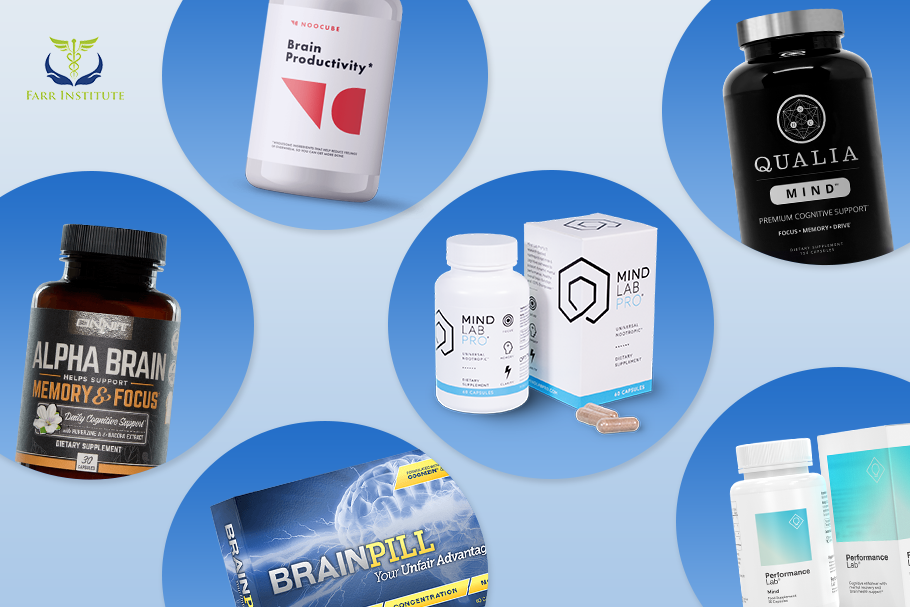
Potential Benefits of Nootropics
Reducing anxiety symptoms
Many individuals turn to nootropics for relief from anxiety symptoms. Some nootropics, such as L-theanine, have been shown to promote relaxation and reduce anxiety without causing drowsiness. Ashwagandha and rhodiola rosea are adaptogens that may also help alleviate anxiety symptoms by modulating stress hormones and promoting a sense of calm.
Alleviating depressive symptoms
Nootropics are also being explored for their potential in alleviating depressive symptoms. Some studies suggest that certain nootropics, such as racetams, may have mood-enhancing properties. Additionally, adaptogens like ashwagandha have been studied for their potential antidepressant effects by modulating neurotransmitters involved in mood regulation.
Enhancing cognitive function
In addition to their potential benefits for anxiety and depression, nootropics are renowned for their cognitive-enhancing properties. Many individuals use nootropics to enhance focus, memory, and overall mental performance. Improved cognitive function can greatly benefit individuals experiencing anxiety or depression by providing a sense of control and mental clarity.
Mechanisms of Action
Neurotransmitter modulation
One of the primary ways in which nootropics are believed to work is by modulating neurotransmitter activity in the brain. Neurotransmitters, such as serotonin and dopamine, play crucial roles in regulating mood, emotions, and cognition. By affecting the production, release, or reuptake of these neurotransmitters, nootropics may help regulate mood and promote mental well-being.
Neuroprotective properties
Nootropics are also thought to have neuroprotective properties, meaning they protect neurons from damage and promote their health. This can be particularly beneficial in conditions like anxiety and depression, which are associated with changes in brain structure and function. By protecting the brain from oxidative damage and inflammation, nootropics may help maintain cognitive function and improve symptoms.
Anti-inflammatory effects
Inflammation in the brain has been linked to the development and progression of various mental health conditions, including anxiety and depression. Some nootropics, such as ashwagandha, have been shown to have anti-inflammatory effects. By reducing inflammation in the brain, these substances may alleviate symptoms and improve overall mental well-being.

Popular Nootropic Options
L-theanine
L-theanine is an amino acid found in green tea, known for its relaxing and anxiety-reducing effects. It is believed to promote the production of GABA, a neurotransmitter that helps regulate anxiety and stress levels. L-theanine is often used in combination with caffeine to provide a balanced and focused mental state.
Ashwagandha
Ashwagandha is an adaptogenic herb that has been used for centuries in Ayurvedic medicine to promote overall well-being. It is believed to reduce stress, anxiety, and depression by modulating the body’s stress response and regulating cortisol levels. Ashwagandha is available in supplement form and is often used as a natural alternative to pharmaceutical anti-anxiety medications.
Rhodiola rosea
Rhodiola rosea is another adaptogenic herb that has gained popularity for its potential cognitive and mood-enhancing effects. It is believed to increase the production of serotonin, dopamine, and norepinephrine, neurotransmitters that play crucial roles in mood regulation. Rhodiola rosea is often used to reduce symptoms of anxiety and depression, improve focus, and enhance mental performance.
Research and Studies
Clinical trials on nootropics and anxiety
Several clinical trials have been conducted to investigate the effects of nootropics on anxiety. A study published in the Journal of Clinical Psychopharmacology found that ashwagandha supplementation significantly reduced anxiety symptoms in individuals with generalized anxiety disorder. Another study published in the Journal of Psychopharmacology found that L-theanine supplementation reduced anxiety symptoms and improved cognitive performance in individuals with high anxiety levels.
Clinical trials on nootropics and depression
Research on the effects of nootropics on depression is more limited but shows promising results. A study published in the Journal of Alternative and Complementary Medicine found that ashwagandha supplementation reduced symptoms of depression in individuals with major depressive disorder. Another study published in Phytotherapy Research found that rhodiola rosea supplementation improved symptoms of depression and overall well-being in individuals with mild to moderate depressive symptoms.
Potential limitations and future directions
It’s important to note that while some studies show promising results, more research is needed to fully understand the effects of nootropics on anxiety and depression. The efficacy and safety of different types of nootropics may vary among individuals, and more studies are needed to determine optimal dosages and long-term effects. Additionally, the potential for placebo effects and subjective perception should also be considered when interpreting the results of studies.
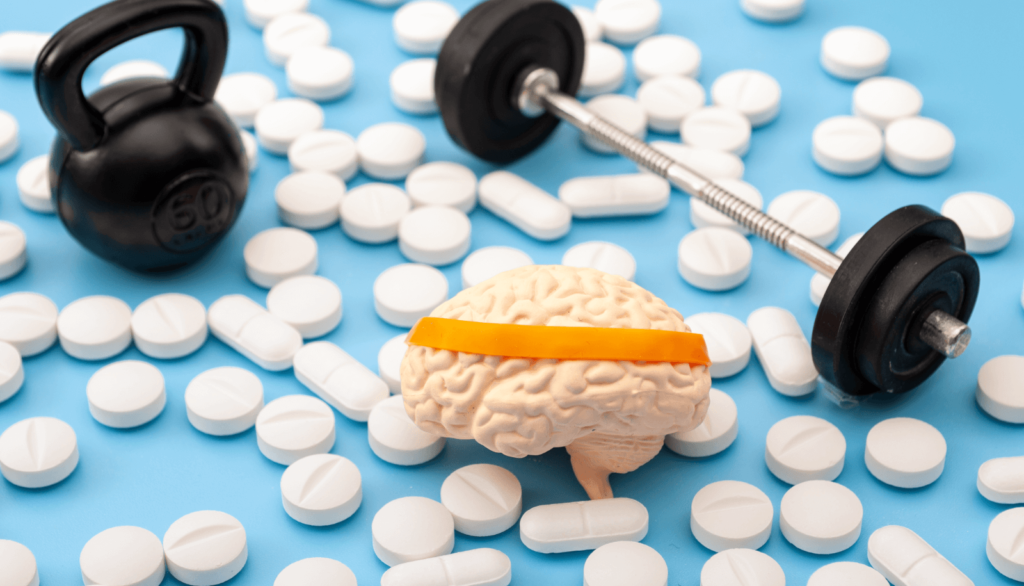
Safety and Precautions
Consulting a healthcare professional
Before starting any new supplement or medication, it is advisable to consult with a healthcare professional, especially if you have pre-existing medical conditions or are taking other medications. They can provide personalized advice and ensure that there are no potential interactions or contraindications.
Possible side effects
While generally considered safe when used as directed, some individuals may experience side effects when using certain nootropics. Common side effects include gastrointestinal discomfort, headaches, and dizziness. If you experience any severe or persistent side effects, it is important to discontinue use and seek medical attention.
Interactions with other medications or conditions
Nootropics may interact with certain medications or medical conditions, so it’s important to disclose all of your current medications and medical history to your healthcare professional before starting any new supplement. They can help determine if any potential interactions or contraindications exist.
Personal Experiences and Testimonials
Individual anecdotes and experiences
Many individuals have reported positive experiences with nootropics, claiming improved focus, reduced anxiety, and enhanced mood. However, it is essential to remember that personal experiences can vary, and what works for one person may not work for another. It is always best to consult with a healthcare professional and make informed decisions based on scientific research and professional advice.
Success stories with nootropics
There are numerous success stories of individuals who have found relief from anxiety and depression symptoms through the use of nootropics. These stories often highlight improved mood, reduced anxiety, and increased cognitive function. However, it is important to remember that individual experiences can vary, and what works for one person may not work for another.
Possible placebo effects and subjective perception
It’s also important to consider the potential for placebo effects and subjective perception when evaluating the effectiveness of nootropics. The belief in the efficacy of a treatment can influence a person’s perception of its effects. It is important to approach personal experiences and testimonials with skepticism and consider scientific evidence and professional advice when making decisions about treatment options.
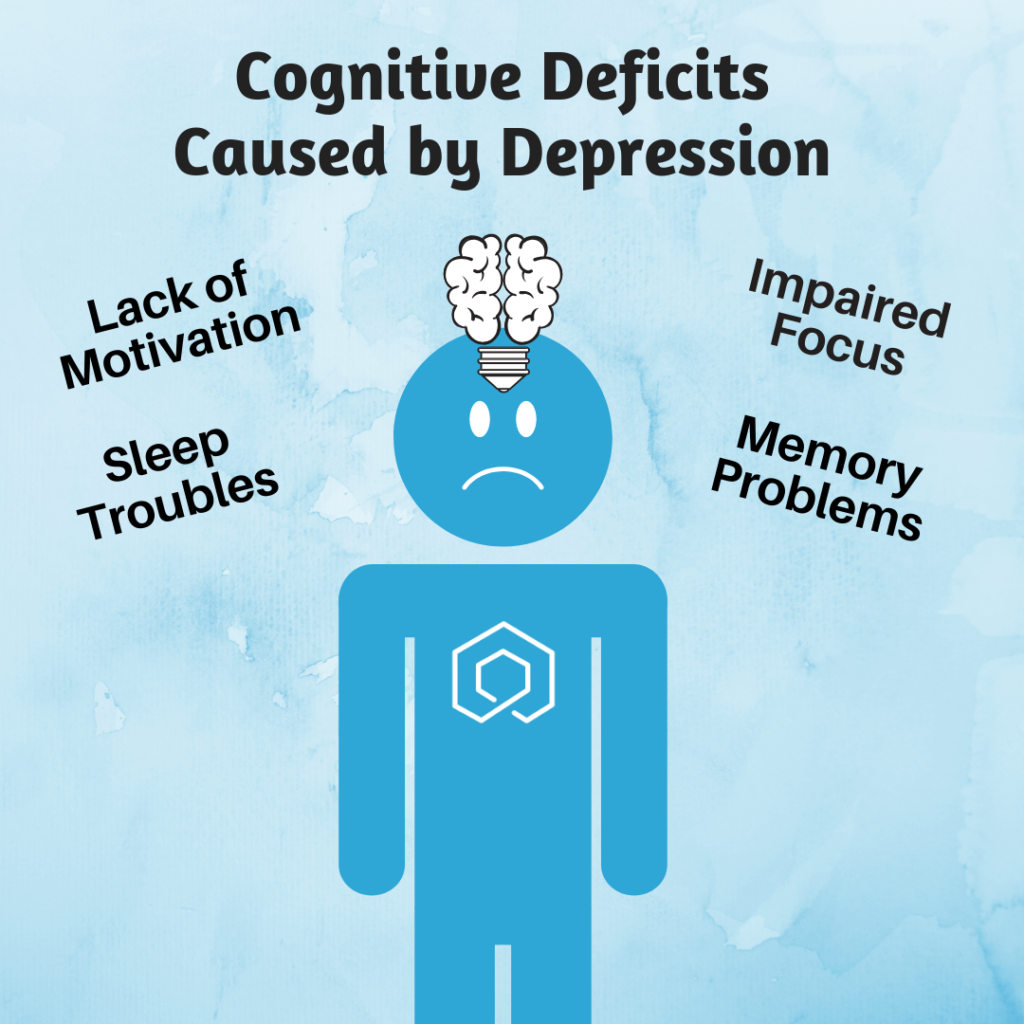
Alternative Approaches to Anxiety and Depression
Therapy and counseling
Therapy and counseling, such as cognitive-behavioral therapy (CBT) or psychotherapy, are commonly recommended approaches to managing anxiety and depression. These therapeutic approaches aim to identify and address underlying thoughts, emotions, and behaviors that contribute to anxiety and depression.
Lifestyle modifications
Adopting a healthy lifestyle can have a significant impact on managing anxiety and depression. Regular exercise, a balanced diet, sufficient sleep, stress management techniques, and engaging in pleasurable activities can all contribute to better mental well-being.
Other pharmaceutical options
There are various pharmaceutical options available for the treatment of anxiety and depression. These include selective serotonin reuptake inhibitors (SSRIs), serotonin-norepinephrine reuptake inhibitors (SNRIs), and benzodiazepines. These medications should be prescribed and monitored by a healthcare professional.
Conclusion
In conclusion, nootropics have gained attention for their potential benefits in managing anxiety and depression. While some studies show promising results, more research is needed to fully understand their efficacy, safety, and long-term effects. It is important to approach nootropics as part of a comprehensive approach to mental health, including therapy, lifestyle modifications, and, when necessary, other pharmaceutical options. Consulting with a healthcare professional and making informed decisions based on scientific evidence and personalized advice is essential for individuals with anxiety and depression.


